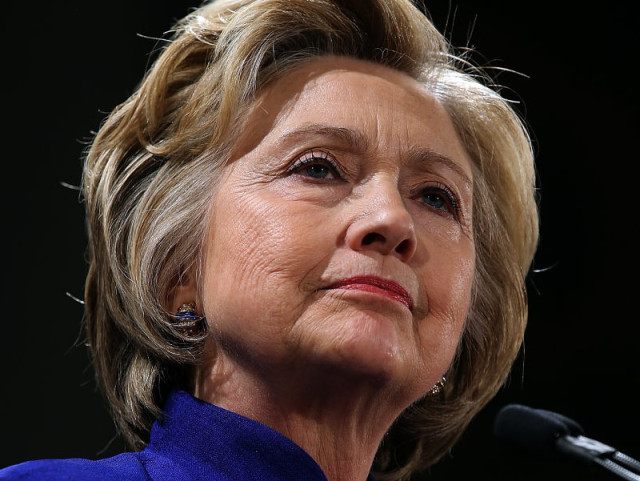For more than a year, the mainstream media has failed to ask Hillary Clinton some very basic questions about a series of extremely troubling deals. Why?
Last Spring, my book Clinton Cash was released and it initially set off a media maelstrom. It began on April 19, 2015, with a leaked copy of the book going to the New York Times. The copy was not sent by me or my publisher. If the Clintons leaked the book with the hope of having it prematurely dismissed, that proved to be a mistake. The paper called the book “the most anticipated and feared book” of the political season. The Times went on to note that the book was hardly a hysterical attack on the Clintons, but rather, “mainly in the voice of a neutral journalist” who “meticulously documents his sources, including tax records and government documents.”
Things got worse for the Clintons a few days later when two New York Times Pulitzer Prize-winning investigative reporters, Jo Becker and Mike McIntire, took two of the most explosive chapters in the book and did their own digging. What they found confirmed what I had reported. They ran a 3,000-word, front-page article in the paper confirming that:
–Bill and Hillary Clinton had helped a Canadian financier named Frank Giustra and a small Canadian company obtain a lucrative uranium mining concession from the dictator in Kazakhstan;
–The same Canadian company, renamed Uranium One, bought uranium concessions in the United States;
–The Russian government came calling and sought to buy that Canadian company for a price that would mean big profits for the Canadian investors;
–For the Russians to buy that Canadian company, it would require the approval of the Obama administration, including Hillary’s State Department, because uranium is a strategically important commodity;
–Nine shareholders in Uranium One just happened to provide more than $145 million in donations to the Clinton Foundation in the run-up to State Department approval;
–Some of the donations, including those from the Chairman of Uranium One, Ian Teler, were kept secret, even though the Clintons promised to disclose all donations;
–Hillary’s State Department approved the deal;
–The Russian government now owns 20 percent of U.S. uranium assets.
In short, here was what you might call a radioactive scandal. It included secret donations, the Russian government, foreign financiers, more than $145 million, and Bill and Hillary Clinton. And this was just two chapters of the book.
And yet, one year later, Hillary Clinton has never once been asked about this controversial uranium deal by the national media. It never came up during the many Democratic Party presidential debates; never during any of her media appearances on cable news or network television; never by print journalists who are covering her campaign.
The single time she was asked about the uranium deal was by a local reporter in New Hampshire. In June 2015, she sat down with Josh McElveen of local television WMUR. Kudos to McElveen, who raised the uranium deal during the interview. Hillary’s response was evasive. She tried to obscure the facts. She argued that as Secretary of State she was unaware of the deal. She also claimed that the flow of money and the transfer of the uranium were not connected because the timing “doesn’t work.” She claimed that the money flowed from the Canadians to the Clinton Foundation before she was Secretary of State.
This is flat out untrue. As I reported, and the New York Times confirmed, the chairman of Uranium One, Ian Telfer, was making donations to the Clinton Foundation at the time that the State Department was reviewing the sale to Russia. Those donations were kept secret by the Clinton Foundation. Remember: the Clintons had promised President Obama and the U.S. Senate Foreign Relations Committee that they would disclose all donations.
It is remarkable that in the year following the release of Clinton Cash and a 3,000-word article on the front page of the New York Times confirming these facts, that no one in the media (save Mr. McElveen) has been interested in asking Hillary Clinton about this troubling uranium deal.

COMMENTS
Please let us know if you're having issues with commenting.